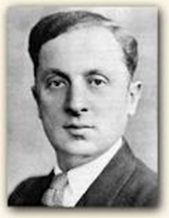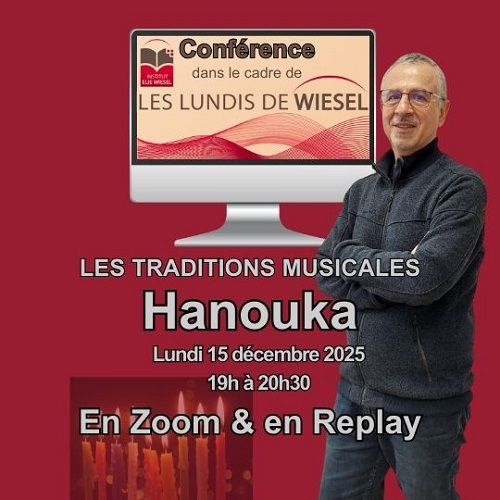
David Itsy Tarasyuk (ca 1898-1989), better known as Dave Tarras, was born in the village called Ternovka, near Uman in Ukraine. As a very young boy, he was immersed in klezmer music, his father being a trombone player in klezmer bands, and a Badkhn (wedding entertainer). Young Tarras often played in his father’s orchestras (kapelye). He played the balalaika, the cobza (a sort of ud), guitar, mandolin and flute. In 1915, Dave Tarras, who already played the clarinet, was enrolled in the tsar’s army, and like many klezmorim before him, his music talents gave him the opportunity to serve in the army’s orchestra instead of fighting on the front lines. In addition, the Russian revolution, the pogroms, and the uncertain economical situation led him to emigrate to New York in 1921. There, he started working as janitor in a sweatshop, thinking he wasn’t good enough in music to make it his job. Some say also that upon his arrival in Ellis Island, the central arrival center for immigrants in New York, his clarinet was destroyed by the immigration services, and that he was able to buy a new clarinet only after having made a lot money from his savings.
But, very quickly, he realized that he was better than most of professional musicians, and that he earned a lot more money with his clarinet. His ability to transpose and read music enabled him to become a very sought-after musician, which launched both his carrier, and at the same time, a long competition with his confrere, the clarinet player Naftule Brandwein. Dave Tarras’ skill at reading music, and his complete tranquility, led him to replace Naftule Brandwein in Joseph Cherniavsky’s orchestra, the Yiddish American Jazz Band. Shortly afterwards, Dave Tarras recorded with Abe Schwartz, – after Schwartz fired Brandwein. As Dave Tarras’ reputation grew stronger, the number of his employers grew larger. He worked and recorded for Joseph Rumshinsky, Abe Ellstein’s orchestras, Alexander Olshanetsky, the Al Glaser’s Bucovina Kapelle, Moishe Oysher, Sholom Secunda, Molly Picon, Seymour Rechzeit, Maurice Schwartz, Aaron Lebedeff, the Barry Sisters and many others. Furthermore, in addition to Jewish music, he recorded Greek, Polish and Russian music.
The klezmer music lovers, in particular today’s clarinet players, often like to argue about which Tarras or Brandwein, was the best, or the more faithful to this music. Tarras’ style was smoother, more solemn, with a slow vibrato, but his phrasing was neat, precise and rhythmic. He didn’t play like Brandwein, who was influenced by the klezmer violin-playing tradition of the Polish region of Galicia. Tarras already played in a less traditional way when he lived in Ternovka, perhaps because he had played in a military orchestra, which emphasizes orchestral unity rather than the individuality of soloists.
We attribute to Dave Tarras the development of bulgars, as a popular style of Jewish dance music. Bulgars weren’t as popular as freylekhs, and were often performed for various ethnic groups in Eastern Europe. Coming from Bessarabia, the bulgar becomes a synonym of the 1940’s American klezmer music, and in particular when Dave Tarras wrote and recorded many of them. His stature as a virtuoso and his popularity were such that many Jewish musicians and the Jewish audience, considered that klezmer music was bulgars. Dave Tarras was the most popular klezmer clarinet player, from the mid 1930’s up to the end of the 1950’s, and was heard on the radio, on recordings, in the Catskills (the famousd borsht belt), on Yiddish theatre stages, and in weddings and other life celebrations. His style influenced a whole generation of clarinet players, among which his pupil, Andy Statman. In 1955, he recorded a new disc with the Musiker brothers orchestra (among who Sam Musiker, who had become his son-in-law), a mix of klezmer music and swing, a revolution at the time, but that wasn’t successful. One of his last appearance was in the documentary “A jumping night in the garden of Eden”
He passed away on February 13, 1989 in Oceanside, in Nassau county, state of New York, leaving a daughter, Broune, a son, Seymour, and seven grand children.
Browse our archives on Dave Tarras



